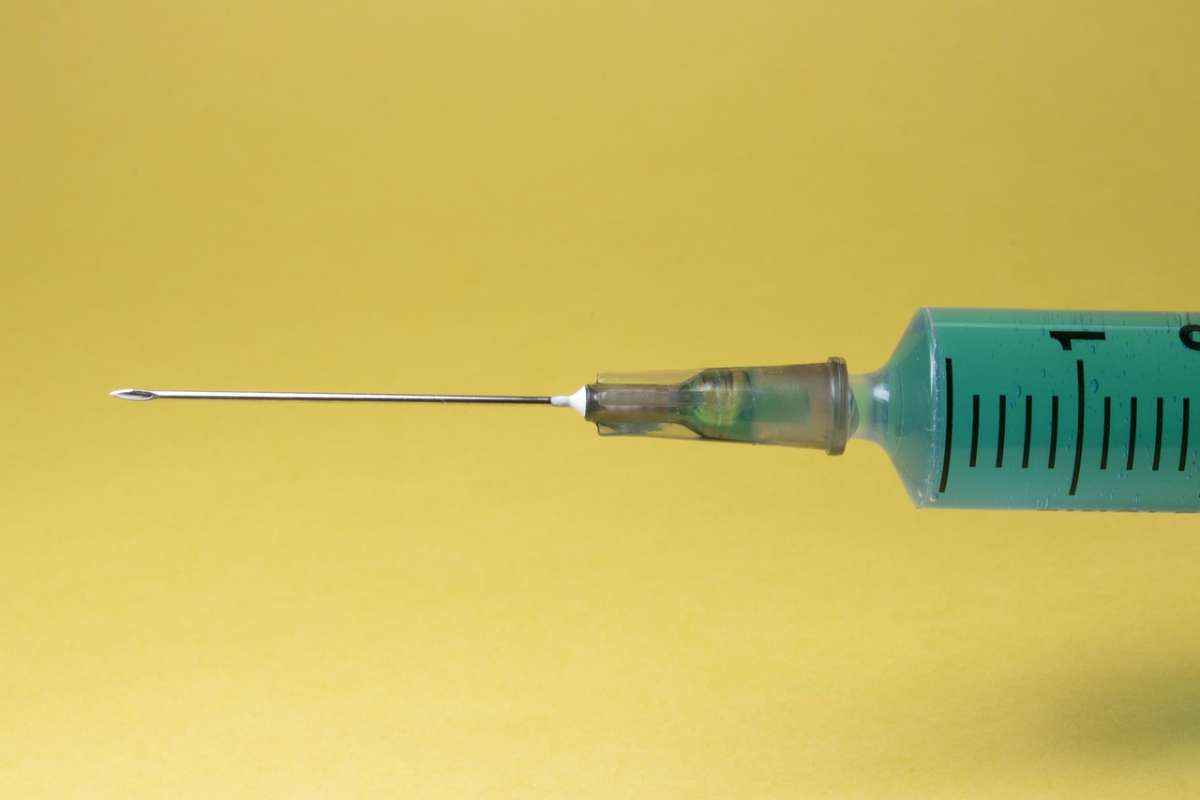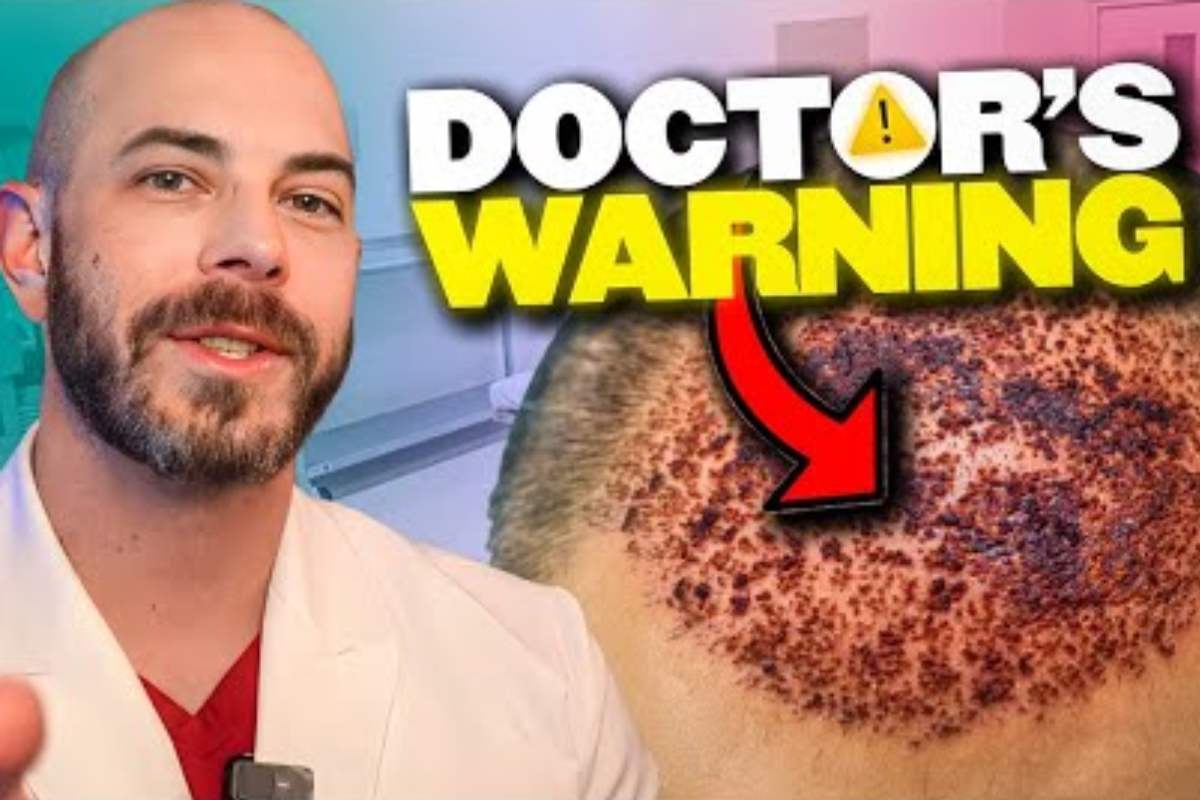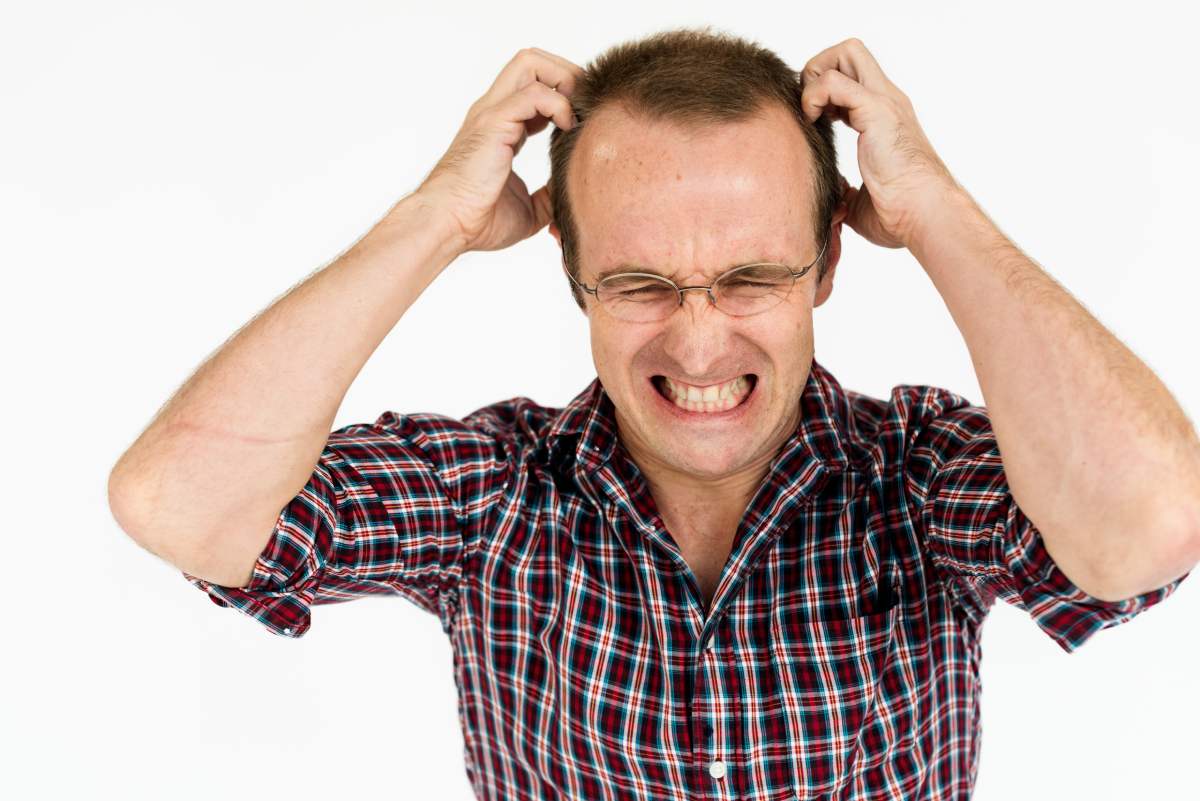There are plenty of myths out there regarding hair loss. Does wearing hats really lead to baldness? Nope. Is your mother’s father the only one to blame for that receding hairline? Unlikely. Can times of severe stress lead to hair loss? Actually, yes!
But don’t think that a single bad day at the office will result in a pillow piled with hair the next morning. Like most health related issues, it’s a little more complicated than that. Instead, to blame is a routine of stress-inducing behaviors and your own biology.
So how exactly does stress-related hair loss work? Is it preventable—and it is permanent? Let’s find out.
What Causes Stress-Related Hair Loss?
Telogen Effluvium
Most hair loss related to high stress is caused by a process called telogen effluvium. Essentially, when you’re flooded with severe stressors, the body goes into a type of survival mode. Your brain halts various nonessential hormones, signals, and other functions. It then directs that energy to other more vital areas of the body.
These signals also tell your hair follicles to go into a resting period. Though you likely won’t notice any baldness at first, within 2–3 months, increased amounts of hair may begin to fall out in the shower or while brushing your hair.
If you begin to control your stress, expect to see hair regrowth about 3–6 month after the initial hair loss. But without learning to minimize stress, telogen effluvium may become a permanent problem.
In other words, even though thick, luscious hair might be your reason to live—your brain disagrees. It’s going to focus on things like keeping your heart rate down and your blood pressure lower. Once everything’s back in check, it’ll consider growing back your mane.
Trichotillomania
Trichotillomania is a repetitive obsessive disorder where sufferers have an irresistible urge to pull out their hair. Though not a directly biological reason for stress-induced hair loss like telogen effluvium, it is related nonetheless as stress exacerbates the symptoms and impulses.
If the root cause of the hair pulling impulse is correctly treated, the hair should begin growing back within a couple months, assuming there are no other underlying problems.
Alopecia Areata
Affecting about 5.3 million people in the U.S., alopecia areata is an autoimmune disease caused by the body’s immune system actually attacking the hair follicles. Though the disease isn’t caused by stress itself, high stress situations can cause flare ups leading to significant balding.
There is currently no cure for alopecia areata, though managing stress can help minimize progression and severity.
Postpartum Alopecia
Though not usually related to the stress of the new baby itself, postpartum alopecia is a classic form of telogen effluvium. New moms often notice clumps of hair falling out between about 3–6 months after childbirth. Though stress might play a small role, this hair loss is typically due to massive hormone fluctuations and typically resolves itself completely within 6–12 months.
Treating Stress-Related Hair Loss
By far, the best way to treat stress-related hair loss is to—you guessed it—reduce your stress levels. We totally get this is easier said than done. Who wouldn’t jump on a plane and high-tail it to Hawaii for some much needed R&R if they could? Instead, we’ve got bills to pay, kids to feed, and careers to build.
But that doesn’t mean we can’t practice some much needed self-care here at home. We all have our different methods of relaxation, but some popular, effective ones include:
- Boosting your exercise
- Getting plenty of sleep
- Eating a nutritious, balanced diet
- Engaging in hobbies
- Meditation
- Treating yourself to a rare indulgence
- Spending more time with friends and loved ones
Whatever it is, be sure to incorporate it into your everyday routine and make that me-time part of your lifestyle.
When to See a Hair Loss Specialist
If you’ve taken measures to reduce your stress and still notice significant hair loss, or notice significant progression of the hair loss, schedule an appointment with a hair loss expert or dermatologist immediately. From there, they can diagnose the exact issue. It could be the sign of another underlying problem not actually related to stress such as male pattern baldness, menopause or thyroid disease.
And even if you’re confident that stress is the culprit, seeing a specialist can help speed up hair growth with the recommendation of a multitude of effective non- or minimally-invasive treatments. Popular treatments include medications like finasteride or Minoxidil, hair transplants, and more.
Think your hair loss might be related to high stress? Ready for it to grow back? Stop wondering and trust the hair loss experts at Limmer HTC in San Antonio. We are dedicated to putting patients first, providing them only the top hair growth solutions available. For any questions, or to set up a consultation, call us at (210) 496-9992 or request an appointment online today.







